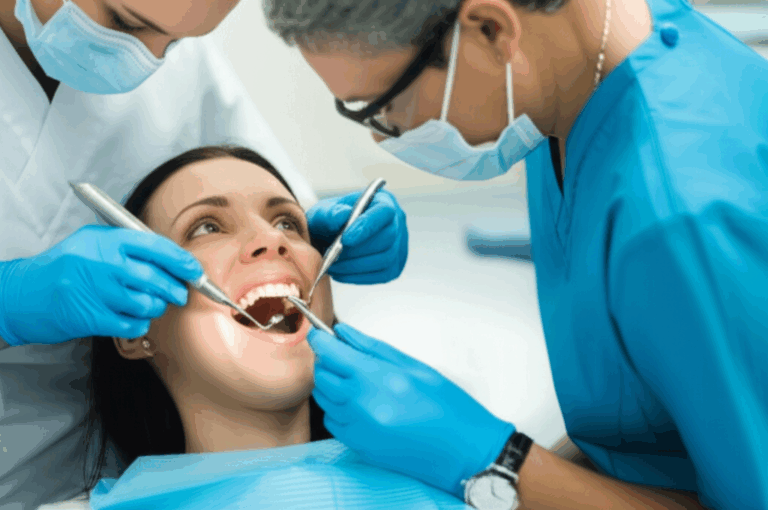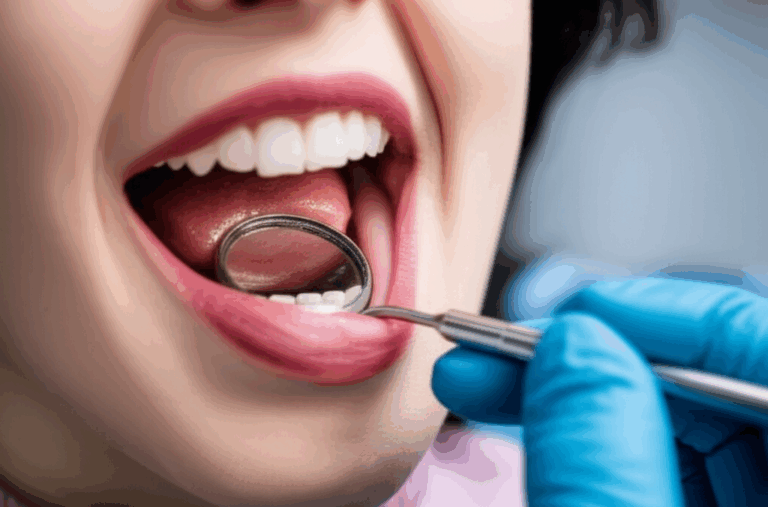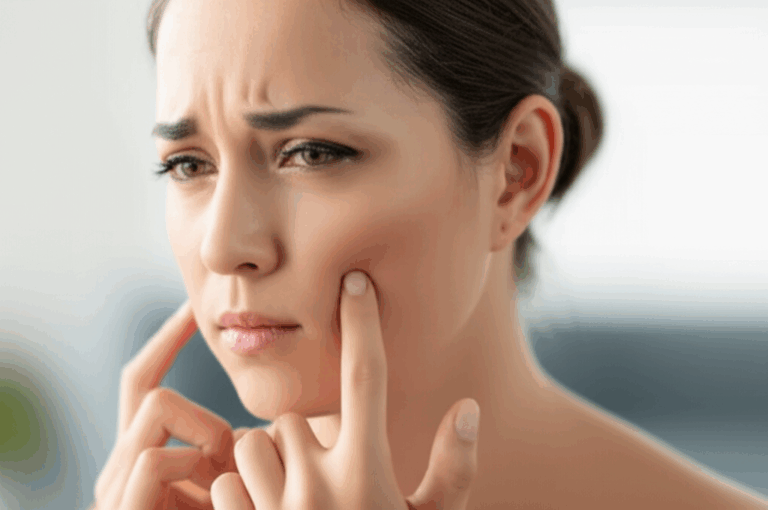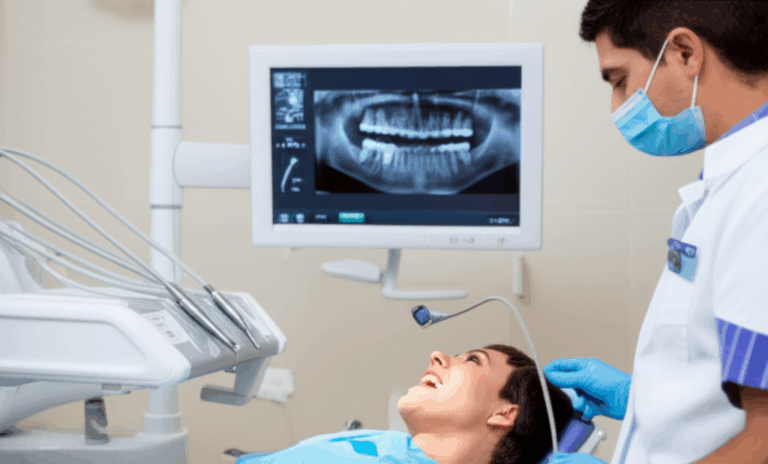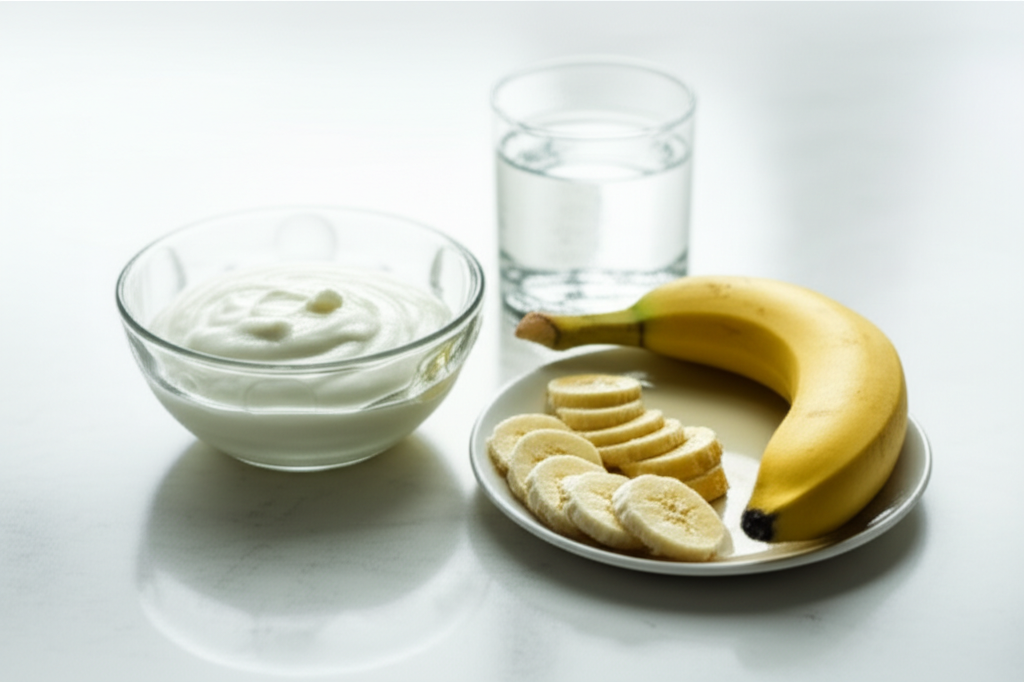
What to Eat Before the Dentist: Your Guide to a Comfortable & Successful Visit
You’re looking at your appointment reminder and your mind goes right to food. “Should I eat breakfast? What if I get hungry? Wait, what if I eat the wrong thing?” If you’ve wondered what to eat before the dentist, you’re not alone. Maybe you’re nervous. Maybe you don’t want to get lightheaded sitting in the chair. Maybe, you just don’t want the dentist to find food stuck in your teeth.
Let’s be real: the right meal before your appointment can make you feel better, keep you steady, and even make things easier for your dentist. The wrong food? It could make you uncomfortable, nervous, or give your dentist extra work. No matter if you’re in for a checkup, a filling, or something bigger, a little planning helps a lot.
In This Article
Here’s what we’ll cover so you can get ready for your dentist visit and feel in control:
- Why Your Pre-Dentist Meal Maters More Than You Think
- The Golden Rules: General Guidelines for Pre-Dentist Eating
- Best Foods to Eat Before Your Dentist Appointment
- Foods and Drinks to Avoid Before Your Dentist Visit
- Special Considerations for Different Dental Procedures
- The Importance of Drinking Water
- When to Eat: Timing Your Meal
- Post-Dentist Meal: What’s Next?
- Conclusion: Take Care of Yourself for a Better Dental Visit
Why Your Pre-Dentist Meal Matters More Than You Think
Let’s break it down. That growling in your stomach, feeling nervous, or even dry mouth can all connect to what you ate (or didn’t eat) last. Many people think going to the dentist is just about what happens in the chair. But what you eat before your appointment can make your experience good or bad.
Think about it: you come for a cleaning, but you didn’t eat since last night because you were worried about bad breath. Ten minutes in, your stomach makes noises the hygienist can hear. Or, you had a sticky caramel bar right before your check-up, and now your dentist is fighting bits of it stuck to your teeth.
Eating isn’t just about feeling full. It affects how you feel and how your mouth feels. Some foods can make you more— or less—comfortable. Let’s help you pick the right ones.
The Golden Rules: General Guidelines for Pre-Dentist Eating
Think of these like your playbook.
1. Keep it Small
Big, heavy meals with a lot of grease or spice can feel like a rock in your stomach. This can make you feel sick, especially if you’re nervous. You want to feel fine, not full.
2. Pick Soft, Non-Acidic Foods
Eat foods that don’t make you chew a lot. Non-acidic foods won’t hurt your gum or teeth. Save oranges and grapefruit for later.
3. Drink Water
Water is the best thing for your mouth. It keeps things comfortable, rinses away bits of food, and helps you handle stress. Skip the sweet sodas.
4. Stay Away From Problem Foods
Don’t eat sweets, sticky stuff, hard, or sour things. Your teeth, gums, and dentist will thank you.
5. Time it Right
Eat about 1-2 hours before your appointment. This gives your body time to digest but keeps you from being hungry or tired when you’re in the chair.
Best Foods to Eat Before Your Dentist Appointment
So, what’s good to help you feel better and not stick in your teeth? Here are foods that are simple and work well.
Easy and Gentle Options
- Plain Oatmeal or Low-Sugar Cereal: Warm, not sour, and easy to eat. Oatmeal doesn’t stick or bother your mouth.
- Scrambled or Boiled Eggs: Soft, full of protein, won’t get stuck. Great for energy.
- Plain Yogurt: Smooth and calming. Pick low-sugar types.
- Banana or Applesauce: Both are soft and sweet. Bananas are calm on your mouth.
- Fruit and Veggie Smoothies: Use bananas or spinach—skip berries with lots of seeds.
- Steamed Veggies: Carrots or sweet potatoes, mashed or soft. These are gentle and easy to eat.
- Clear Broths or Light Soups: Warm and soothing. Stay away from soups with noodles or grains that might end up between your teeth.
- Lightly Toasted Whole-Grain Bread: Need something bread-y? Try toast—just don’t use peanut butter or sweet spreads.
- Small Bits of Baked Chicken or Fish: Plain, soft pieces cut small.
Why These Foods Work
They’re fine to eat, simple to chew, and won’t leave stuff behind. They keep your energy steady so you can focus on the dentist, not hunger. Plus, they’re easy to clean up—so you don’t need to worry about having something in your teeth.
Foods and Drinks to Avoid Before Your Dentist Visit
Let’s talk about what gives you (and the dentist) a hard time.
1. Sweets
Candy, donuts, soda—these leave sugar in your mouth for bacteria, and can leave a sticky coat even if you brush.
2. Sticky Foods
Chewy candy, raisins, granola bars—these glue themselves on your teeth. Even brushing might miss them.
3. Hard and Crunchy Foods
Chips, nuts, popcorn, hard bread—these can get stuck or even break a weak tooth.
4. Acidic Foods and Drinks
Citrus, pineapple, tomatoes, and sodas can make teeth sensitive.
5. Spicy Foods
Spice can make your mouth sting—and that’s no fun when your dentist is working.
6. Alcohol
Even a little dries your mouth and could mess with meds the dentist gives. It’s best not to have any before your visit.
7. Caffeine (Be Careful)
Love your coffee? Too much can make you feel extra nervous. If you’re already anxious, try herbal tea or water. Coffee also stains teeth and leaves an odor.
Special Considerations for Different Dental Procedures
Not every visit is the same, so here’s how your food choices might change:
Routine Cleaning or Check-up
Eat soft, simple foods. Brush and floss after you eat.
Fillings or Crowns
Eat as you would before a cleaning, but be even more careful about food that could get trapped around your teeth.
Extractions or Oral Surgery
If you’re having teeth pulled or surgery, listen to your dentist’s instructions! If you have general anesthesia, usually you need to not eat or drink after midnight. If it’s just numbing, a light snack 1-2 hours before is usually fine, but always check with your dentist first.
Nervous Patients or Dental Anxiety
If you get nervous or your stomach acts up, try bland foods like eggs, applesauce, or oatmeal. Skip caffeine, big meals, and spices.
The Importance of Drinking Water
Don’t forget water. It keeps your mouth moist, rinses away food, and helps your spit do its job. Spit (saliva) is like your body’s built-in rinse—it washes away acids and keeps things healthy.
Bring some water with you and sip it before your appointment. If allowed, rinse your mouth before you go in.
Don’t drink juice or soda—they’re full of sugar and can make teeth more sensitive. Flavored waters can be sour or have sweeteners that still bother your mouth.
When to Eat: Timing Your Meal
Timing is important. Eat too early, and you’ll be hungry in the chair. Eat too late, and food might still be stuck between your teeth.
Here’s the Plan
- Eat a small meal or snack 1-2 hours before your appointment.
- This gives you time to digest and clean your mouth after.
- Brush and floss after.
- Even soft foods can leave bits behind. Brush, floss, and rinse before you head out.
- Follow instructions for special procedures.
- If you’re getting sedation or surgery, follow all fasting rules. This keeps things safe.
Post-Dentist Meal: What’s Next?
While you’re thinking about eating before the dentist, also plan for after—especially if your mouth will feel numb or sore.
Get soft foods like yogurt, mashed potatoes, or soup for later. Don’t eat hot, crunchy, or spicy foods right after dental work. Not sure what’s okay? Your dentist will usually give you a list or tips to help.
Feel free to check out more tips on recovery and meal ideas at practical guide.
Your Options Explained: What You Can Do at Home, When to Ask Your Dentist
You have more control than you think!
At Home:
- Plan ahead: eat soft, easy foods for energy.
- Avoid the trouble foods: sugary, hard, sticky, sour.
- Drink lots of water.
- Brush, floss, and rinse before you leave.
With Your Dentist:
- Tell them if you feel nervous, skipped a meal, or have stomach issues.
- Ask for special instructions if you’re having sedation or surgery.
Getting a crown or implant? Labs like implant dental laboratory often have more tips for special procedures that your dentist can share.
“Who Is This For?”: Who Should Plan Their Pre-Dentist Meal
Everyone can benefit, but some should be extra careful:
- Kids and Teens: Early appointments need a light breakfast to keep energy up.
- People with Health Conditions: If you have diabetes or have to time your meals, talk to your doctor and dentist.
- People with Dental Anxiety: Plain foods help your nerves and settle your stomach.
- Anyone Getting Lots of Work Done: If you need sedation, always follow the dentist’s rules.
If you’re having big dental work done, like a new retainer or getting a crown made by a dental lab for retainers, smart food choices just make sense!
The Healthy Takeaway: Bulleted Summary
Here’s what to remember for your next visit:
- Eat light and soft: Try oatmeal, eggs, yogurt, banana, smoothies, or soup.
- Don’t eat sweets, sticky, sour, or crunchy food: They can cause problems.
- Drink lots of water: Keeps your mouth healthy.
- Eat 1-2 hours before: Gives time to digest and clean up after.
- Follow your dentist’s instructions: Especially if you need anesthesia.
- Plan soft foods afterward: Especially if your mouth will be sore.
- Ask questions: Your dentist is there to help!
Conclusion: Take Care of Yourself for a Better Dental Visit
You’re not just along for the ride at the dentist. Planning your snacks and meals can make your visit easier and more comfortable.
Food is your power—for energy, comfort, and a healthy mouth. Keep it soft, simple, and drink plenty of water. Brush and floss after you eat, and head to your appointment knowing you’re ready.
Remember: if you’re not sure about something—maybe prepping for a retainer, a new crown, or something else—there are always good resources and you can check with your dentist or browse patient dental for more info.
Plan smart for your next dentist visit. You—and your dentist—will be glad you did!

